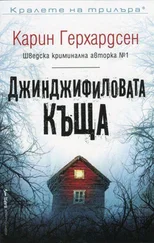Карин Тидбек - Amatka
Здесь есть возможность читать онлайн «Карин Тидбек - Amatka» весь текст электронной книги совершенно бесплатно (целиком полную версию без сокращений). В некоторых случаях можно слушать аудио, скачать через торрент в формате fb2 и присутствует краткое содержание. Город: New York, Год выпуска: 2017, ISBN: 2017, Издательство: Vintage Books, Жанр: Фантастика и фэнтези, на английском языке. Описание произведения, (предисловие) а так же отзывы посетителей доступны на портале библиотеки ЛибКат.
- Название:Amatka
- Автор:
- Издательство:Vintage Books
- Жанр:
- Год:2017
- Город:New York
- ISBN:978-1-101-97395-0
- Рейтинг книги:4 / 5. Голосов: 2
-
Избранное:Добавить в избранное
- Отзывы:
-
Ваша оценка:
- 80
- 1
- 2
- 3
- 4
- 5
Amatka: краткое содержание, описание и аннотация
Предлагаем к чтению аннотацию, описание, краткое содержание или предисловие (зависит от того, что написал сам автор книги «Amatka»). Если вы не нашли необходимую информацию о книге — напишите в комментариях, мы постараемся отыскать её.
Amatka — читать онлайн бесплатно полную книгу (весь текст) целиком
Ниже представлен текст книги, разбитый по страницам. Система сохранения места последней прочитанной страницы, позволяет с удобством читать онлайн бесплатно книгу «Amatka», без необходимости каждый раз заново искать на чём Вы остановились. Поставьте закладку, и сможете в любой момент перейти на страницу, на которой закончили чтение.
Интервал:
Закладка:
Vanja was asked to telephone Essre to inform them about the children’s imminent arrival. The person on the other end sounded bewildered.
“You’re breaking up,” he said. “What’s that?”
“We’re sending the children,” Vanja repeated.
“I can’t hear you properly,” said the operator. “If there are more of you, please take turns speaking.”
“It’s just me,” Vanja said.
“I’m hanging up now,” the operator said. “I’ll try calling you up.”
The telephone went dead. Vanja waited for the call for fifteen minutes before trying herself. There was only the hiss of an empty line.
Paint and brushes were distributed at midday, to supplement verbal marking with text. Anders sent Vanja out to mark corridor walls, doors, and stairs. The departments were all buzzing with quietly frantic activity: hurried steps across office floors, agitated voices behind closed doors. Occasionally someone would open a door to peer suspiciously down the corridor where Vanja was marking a wall or a staircase. She tried to make out the conversations but was only able to catch random words here and there, none of which made her any the wiser. The black paint had an overpowering smell and wouldn’t quite stick to the walls; it took two layers to make the letters solid. When Vanja finally ran out of paint, her shoulder hurt and her right hand was cramping. She just made it back in time for the three o’clock marking in the reception.
The line to the leisure center wound all the way into the street. Everyone was on time and waited in line in silence. Nina looked pale and somehow shorter than usual. She clutched Vanja’s hand tightly.
Vanja had come home from work to find Nina in the kitchen with a pair of administrators. One of them had led Nina outside; the other had asked Vanja to sit down. The administrators had seemed stressed and distracted. They asked only a handful of questions: when Ulla was last seen, if Vanja had been into Ulla’s room (once), if she had noticed this one box on that occasion (no), if she knew whether Ulla harbored subversive opinions (no), if it was her opinion that Ulla might be senile (yes, maybe). They had soon made to leave, parting with an explicit promise to return.
“Where’s the next one?” one of them had asked the other as the front door closed behind them.
Vanja had gone upstairs. The door to Ulla’s flat was still sealed. Then it had been time for leisure.
When the evening meal, consisting of nothing more than mushroom and bean porridge, had been served and people were busy eating, committee member Jolas’ Greta climbed the dais. She talked about what had happened to the library. Her voice was firm, with an undertone of suppressed anger.
“A citizen has been apprehended. He is a librarian. We have received a confession.” Greta paused and looked out at her audience.
Vanja held her breath. What had he told them? Had he mentioned her name? Wouldn’t they have arrested her if that were the case? “During the interrogation,” Greta continued, “he confessed that he started the fire on purpose. He also admitted that his intention was to undermine the commune by destroying all our good paper.”
Greta paused again and looked down at her hands. When she raised her head again, she fixed on each citizen in turn. “We know that this type of act, this way of thinking, could not have… come to fruition… had not something been amiss in the group as a whole. In a healthy commune, each member safeguards the group. In a healthy commune, the librarian doesn’t burn down the library.”
Greta smiled wistfully. “This man was lonely. He had no one to talk to, no one to confide in. Loneliness is dangerous. Silence is dangerous. Through loneliness and silence, a small feeling of discontent can grow into illness. If only he had had someone to talk to. If only he had felt part of this community, if he had felt a sense of responsibility toward the commune.”
She shook her head. “Looked at this way, we are all to blame for what happened. We must never let our comrades feel alone.”
Someone began to clap. The applause spread like thunder through the hall. Greta raised her hands in a calming gesture until the crowd had settled down. “Tonight, we’re going to start treating the disease that is loneliness. We are going to talk about our pain, our thoughts, and through this become closer to one another. No one will be angry with you. No one will punish you. Your comrades will greet you with sympathy. Don’t be afraid! Come.” Greta took a step to the side and made a beckoning gesture.
As if on cue, a young woman stepped up onto the dais. She talked about how she had uncharitable thoughts about her housemates, but it was really because she felt inferior to them. The crowd applauded her. She stepped down from the dais with tears running down her face. She was met by her housemates, who embraced and kissed her.
People were almost launching themselves at the dais after that. Citizens stood up one after the other, shouting their loneliness to the commune, their disloyal thoughts, their petty thefts of office supplies, their unkind deeds toward their fellow comrades. One after the other, they were applauded and embraced by their friends. The atmosphere turned frenzied. The dais wasn’t enough. Some stood up on benches and tables to speak to those nearby. Vanja and Nina were still seated, Nina gazing into the distance, her hand in Vanja’s a warm, calm spot in the swirling chaos. The hysteria spread to their table. Their neighbors got up to tell everyone about doubt, pettiness, loneliness. They wept as they unburdened themselves of their minor infractions. Eventually a momentary silence descended. The others turned to Vanja and Nina.
“Say something,” a man next to them urged.
His face was streaked with salt and tears. He had confessed to once slapping his daughter for being loud on a Sixday.
Vanja’s arms and legs went numb. Next to her, Nina gave a start, as if only now realizing where she was. The silence grew longer.
The man with the tear-streaked cheeks took Vanja’s free hand and caressed it. “You can tell us.”
His hand was clammy against her skin. Disgust drove her across a line she hadn’t been aware of.
“I have nothing to confess,” she said loudly. “I’m not going to say sorry.”
The others stared at her, openmouthed. Vanja pulled free of the man’s grip. She took a clumsy step backward over the bench. Nina was still holding her other hand. She looked up at Vanja with something like horror.
“I haven’t done anything wrong,” Vanja told her. “I haven’t.”
Nina didn’t try to hold her back. Vanja pushed through the ecstatic crowd, out into the damp night.
“Wait!”
It was Nina. The rec center’s doors swung shut behind her. They were alone in the street, bathed in the murmur from the hall. Nina raised her hands and let them fall back down. She came close enough to put a hand on Vanja’s shoulder. “Where are you going?”
Vanja looked at the hand on her shoulder, her eyes tracing the length of the arm to Nina’s shoulder and face. Nina’s features had become hollow, gaunt. The solid security that Vanja had curled up against was no longer there. “I’m going home,” she replied.
Nina’s eyes welled up. Her chin trembled. “No you’re not. You’re a lousy liar.”
“I’m not going to sit in there and tell them I did something wrong. I’ve always had to do that, and I’m tired of it.” That part at least was true.
“Look, Vanja, everyone makes mistakes. That’s why we’re in there right now—not to point fingers, but to acknowledge that we all make mistakes sometimes so that we don’t have to feel like we’re the only ones….”
Читать дальшеИнтервал:
Закладка:
Похожие книги на «Amatka»
Представляем Вашему вниманию похожие книги на «Amatka» списком для выбора. Мы отобрали схожую по названию и смыслу литературу в надежде предоставить читателям больше вариантов отыскать новые, интересные, ещё непрочитанные произведения.
Обсуждение, отзывы о книге «Amatka» и просто собственные мнения читателей. Оставьте ваши комментарии, напишите, что Вы думаете о произведении, его смысле или главных героях. Укажите что конкретно понравилось, а что нет, и почему Вы так считаете.












![Карин Тидбек - Аматка [ЛП]](/books/438406/karin-tidbek-amatka-lp-thumb.webp)